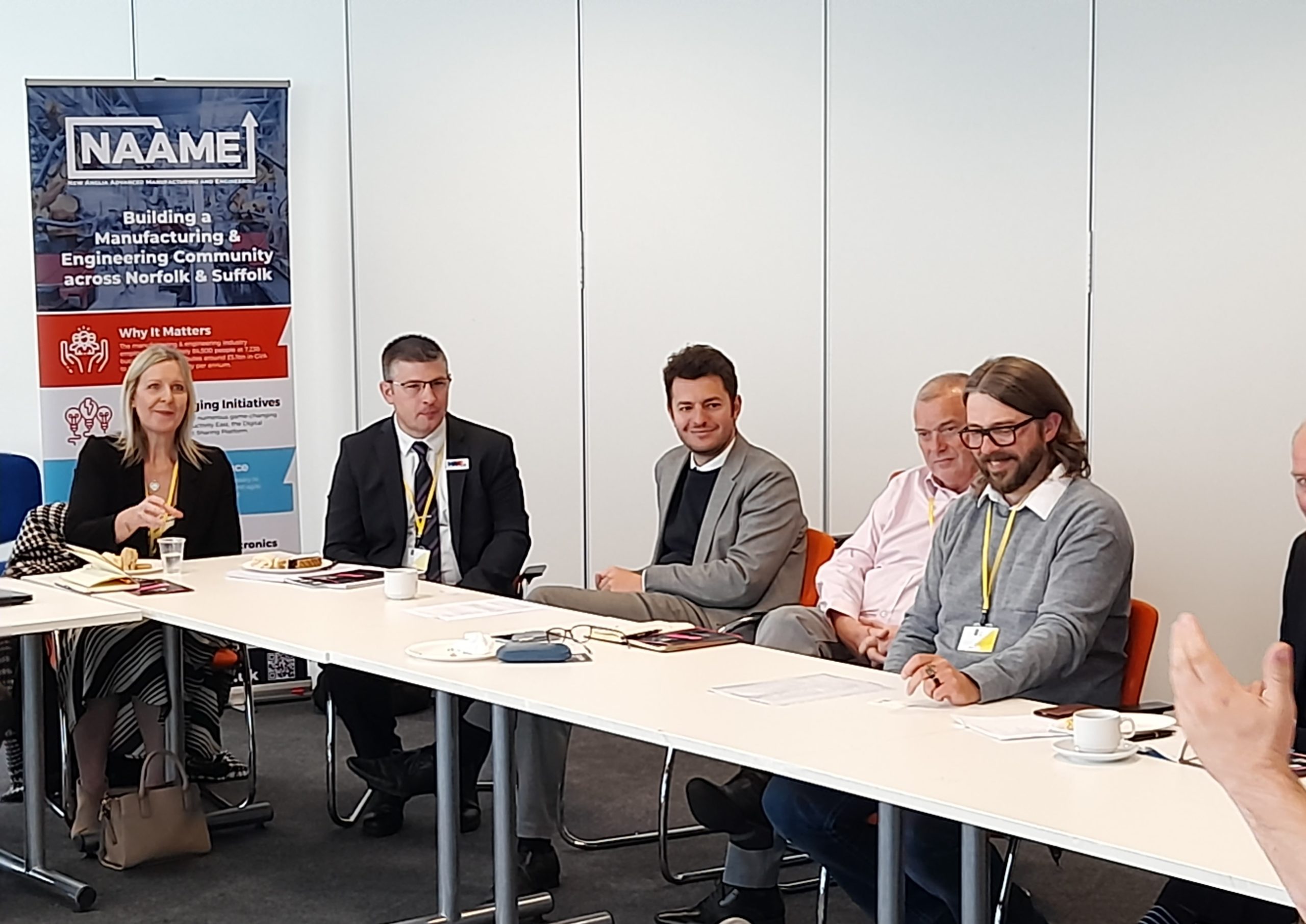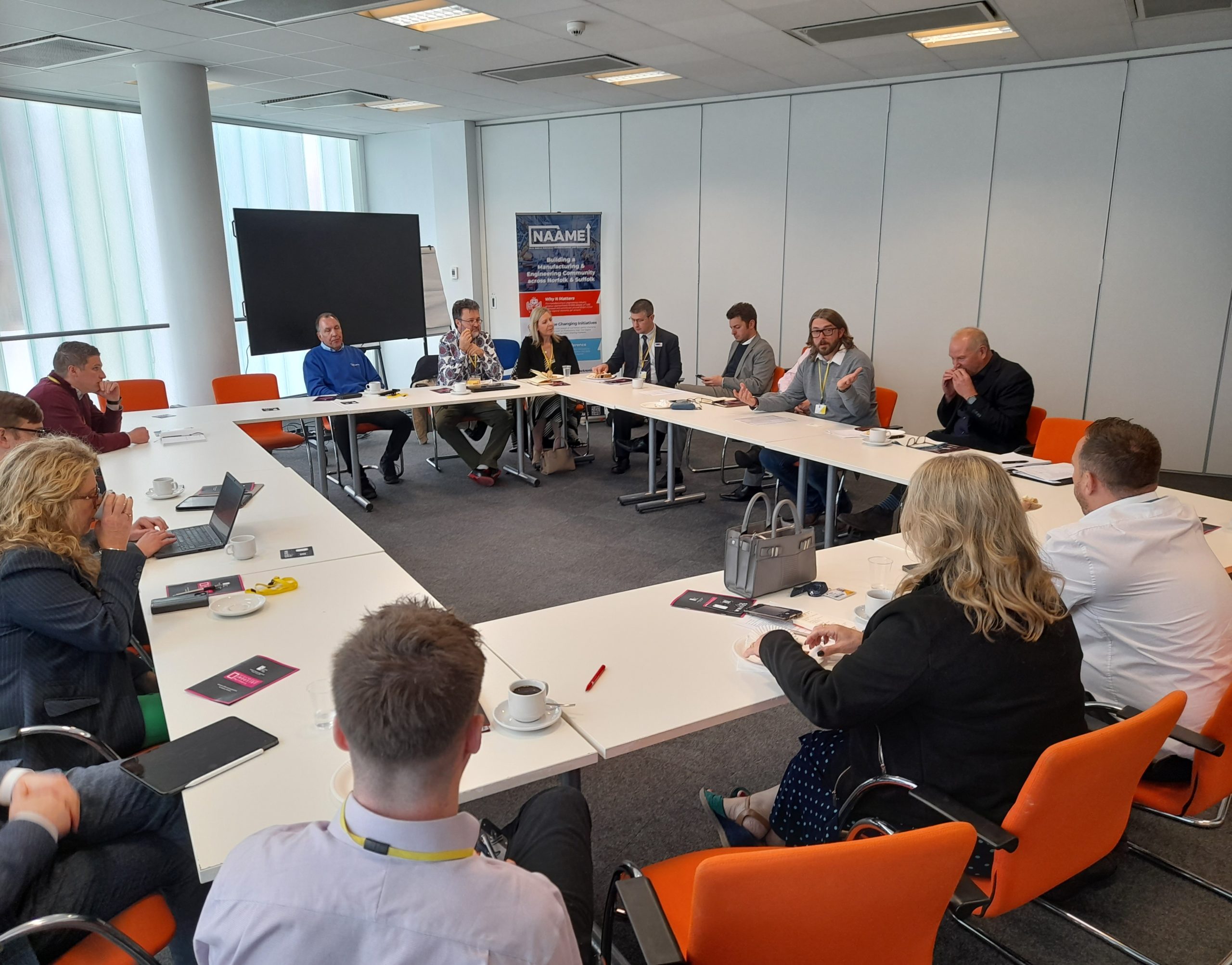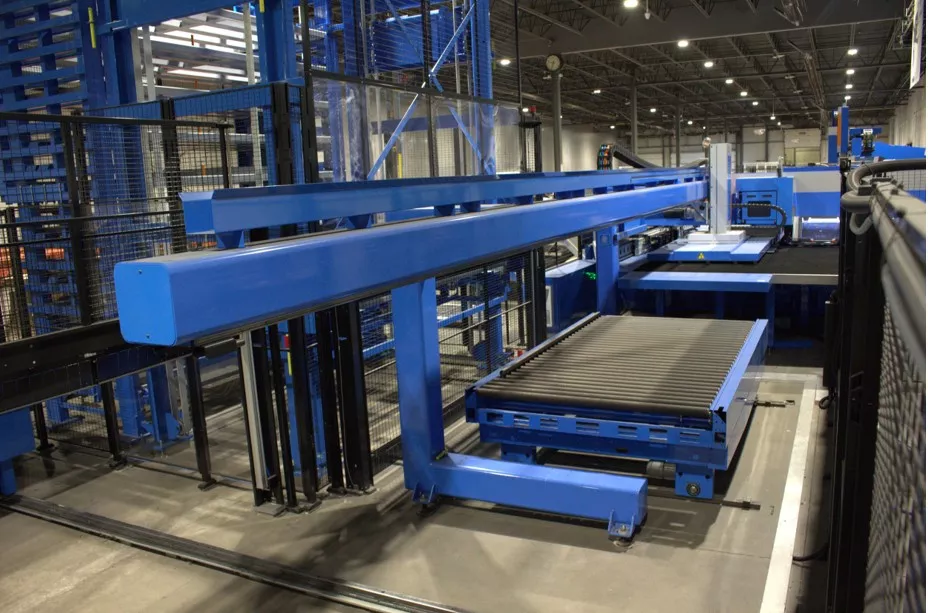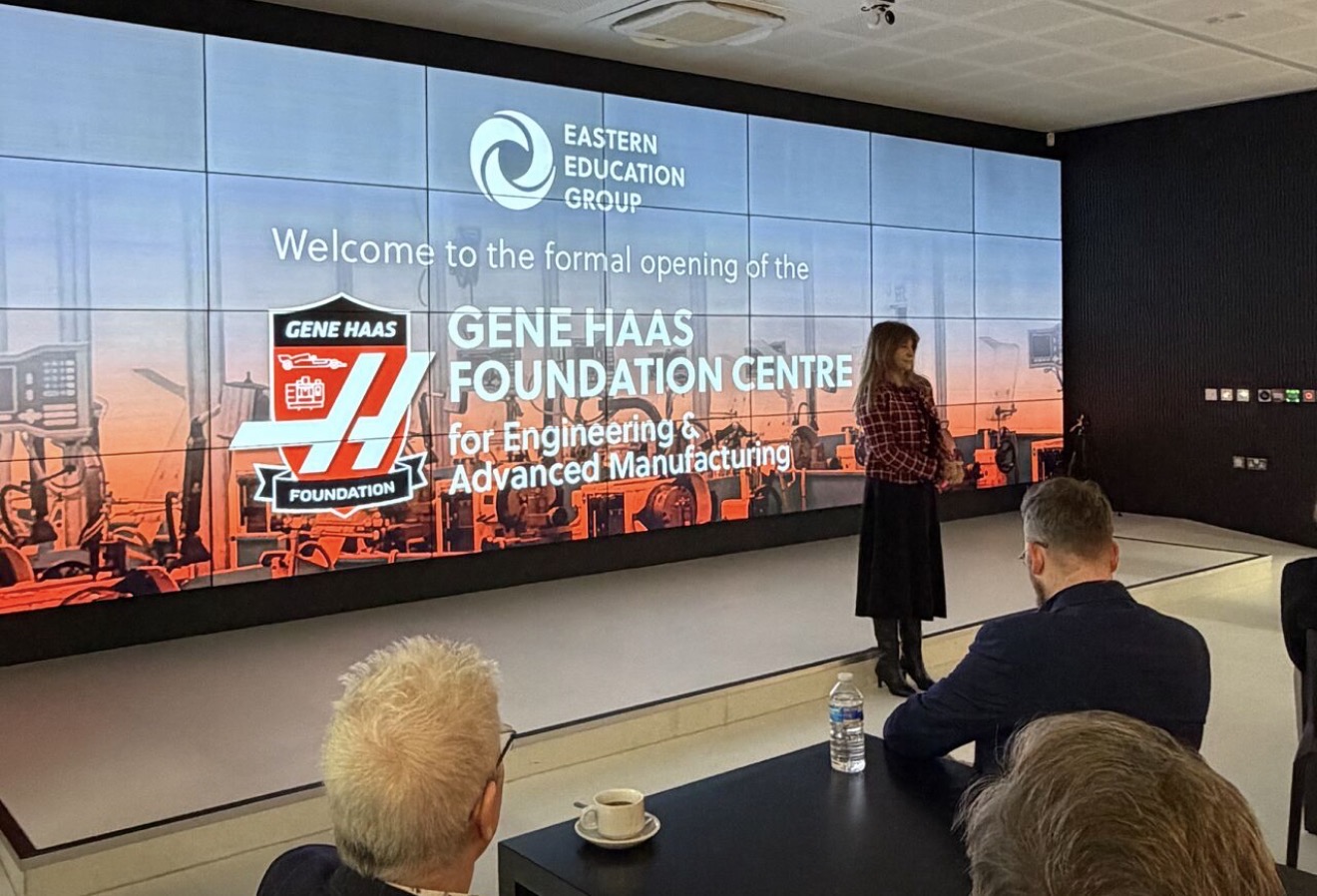Manufacturing roundtable gauges industry sentiment

NAAME [New Anglia Advanced Manufacturing & Engineering] serves as a trusted forum for industry, academia and the public sector in Norfolk and Suffolk, facilitating the sharing of ideas, challenges and best practices within a culture of mutual support and encouragement. The group recently staged an East of England Manufacturing Roundtable at Suffolk New College in Ipswich, a hotly anticipated event.
Bringing together policymakers and industry leaders, the roundtable explored opportunities for growth, innovation and collaboration. A notable attendee was Jack Abbott, MP for Ipswich and the Government’s Mission Champion for the East of England, who fielded questions from 18 attendees representing industries that included precision manufacturing, heavy engineering, technology and automation.
Growth opportunities
Andy Heffer-Lamond, all-round manufacturing industry guru and Sales & Project Manager at sheet-metal contractor HF Bond, chaired proceedings. The debate begin with the topic of growth, or to be more precise, barriers to growth. Recent increases in National Insurance Contributions (NICs) and the minimum wage are causing concern among many manufacturers, particularly SMEs.
Luke Gusman, Director of 35-employee UK manufacturer Bermar, said there is no doubting the impact of higher NICs: “Although we’re actively growing thanks to herculean efforts by our team, I now have to explain why annual pay rises will be less because there’s only so much to go round. Issues such as increased NICs and minimum wage not only prevent growth by halting new recruitment plans but also thwart investment in existing employees. We desperately want to reward ambitious staff.”
Martin Guildford, Area Director for Lloyds Banking Group, suggested business owners could think about different employee benefits: “There’s other schemes out there that could form part of a staff retention strategy. Salary sacrifice arrangements, for example, reduce NI liabilities for both employees and employers.”
MP Jack Abbot was keen to address NICs directly: “I understand it’s a really tough ask, particularly for SME manufacturers. In response, I’d say we have to invest in public services. The UK has one of its sickest populations ever with 8 million on NHS waiting lists, which in turn impacts UK productivity. For a long time we’ve seen public services as a separate realm to business but I think that’s fundamentally wrong. Historically we haven’t invested enough in education or health to support the economy, but the money has to come from somewhere.”
Level best
Touching on education led neatly into the next topic: skills. Leading off here was Alan Burgess, Director in Engineering at host venue Suffolk New College. He is also a lead consultant for City & Guilds and helped co-write the T-Level programme. “The previous Government damaged the credibility of that qualification massively. Today, a lot of education centres are not even using the term T-Level, just Level III.”
Some work on T-Level branding is clearly essential, accompanied by more explanation about the value to employers of a T-Level as a credible two-year technical vocational qualification that is designed as an alternative to A-Levels and apprenticeships. Another issue hindering take-up involves the scrapping in March 2024 of the Employer Support Fund, which provided financial support to employers for T-Level placement costs.

Price of skills
Ben Courts, Regional Membership Manager at Make UK, wanted to voice concerns over the recent 18% rise in the national minimum wage for apprentices: “Some of our members are now questioning any previous intentions to take on apprentices.”
Jack Abbot hopes the new Growth and Skills Levy, which replaces the previous Apprenticeship Levy, will give learners and employers greater flexibility over their training, particularly as it includes shorter foundation apprenticeships. He also singled out an important change where apprenticeship entry requirements for Maths and English grades are now more flexible. This move could unlock a further 10,000 apprenticeships for those who did not attain their expected grades.
A new strategy
Adam Dalby, Managing Director at Brafe Engineering, made another pertinent point: “We talk about economic stagnation and the requirement for apprenticeships, but we need more confidence to invest in apprentices. We require a succinct, tied-up strategy from Government that instils industry confidence.”
Jack Abbot took the point and indicated the impending release of the Government’s Industrial Strategy.
Due for release in June 2025, the manufacturing sector will pin its hopes on an Industrial Strategy that delivers sufficient substance and clarity to nurture the confidence necessary for investment in both business growth and skills.
Further discussions centred on logistics and supply chains, with policymakers and industry leaders exploring ways to collaborate across the sector.








